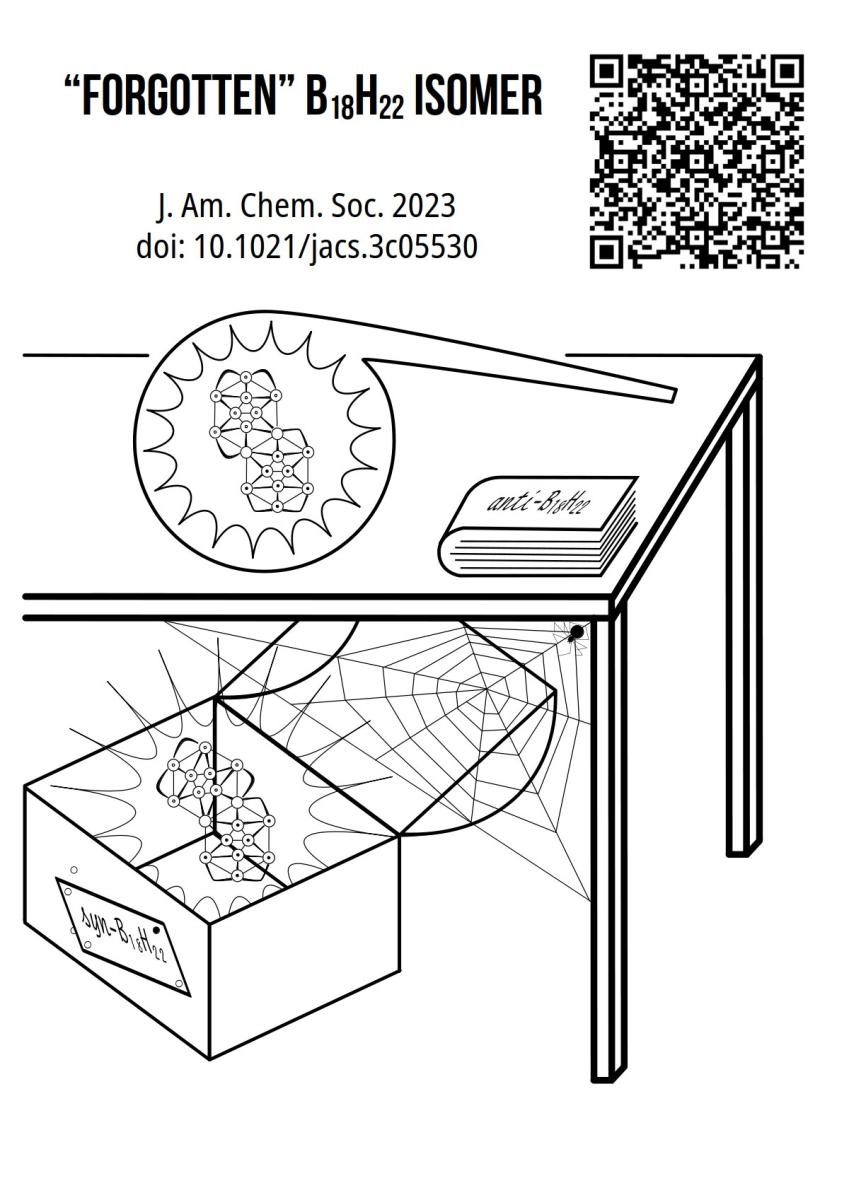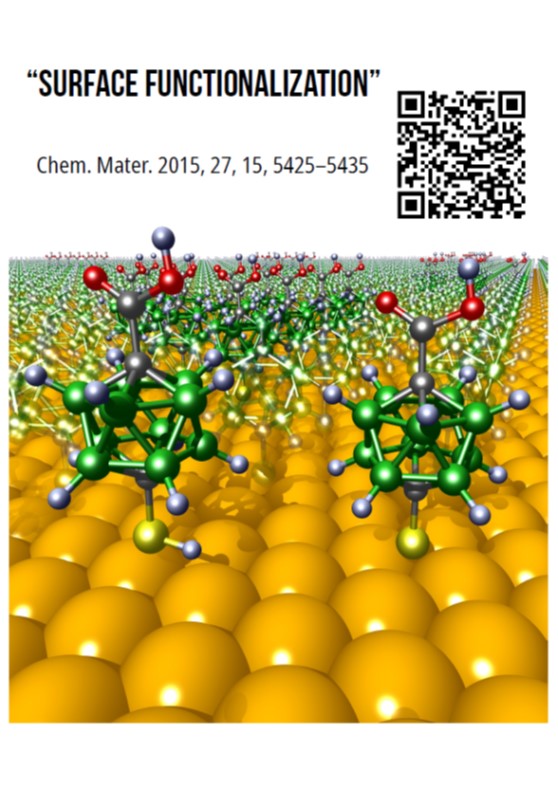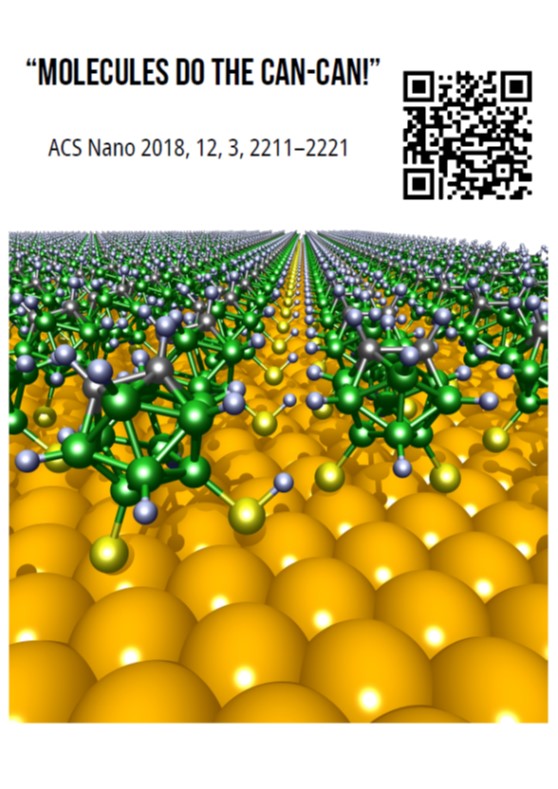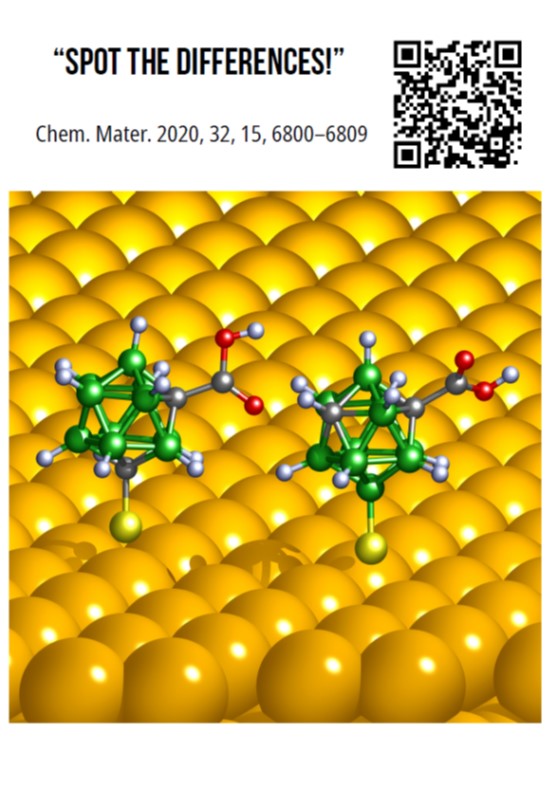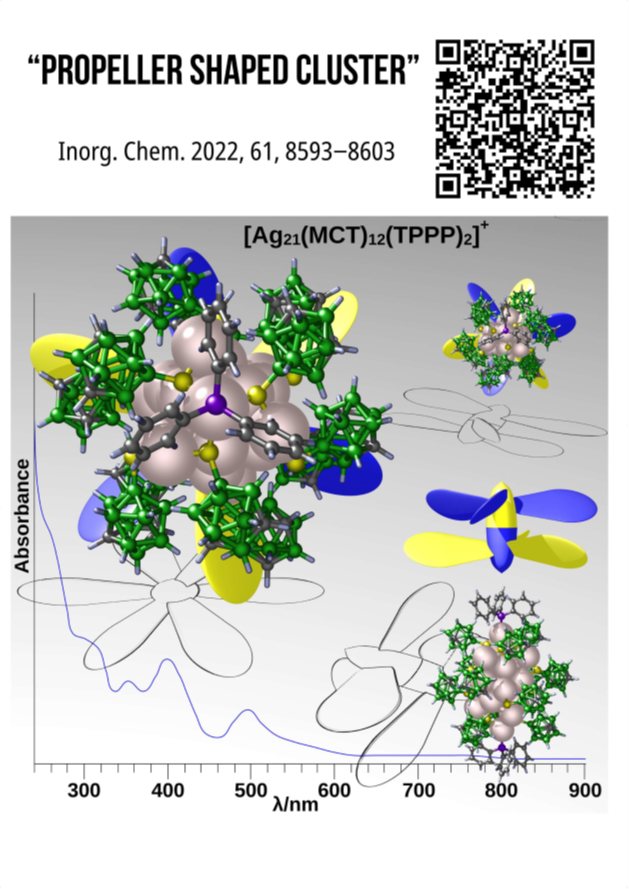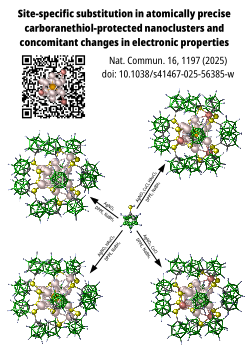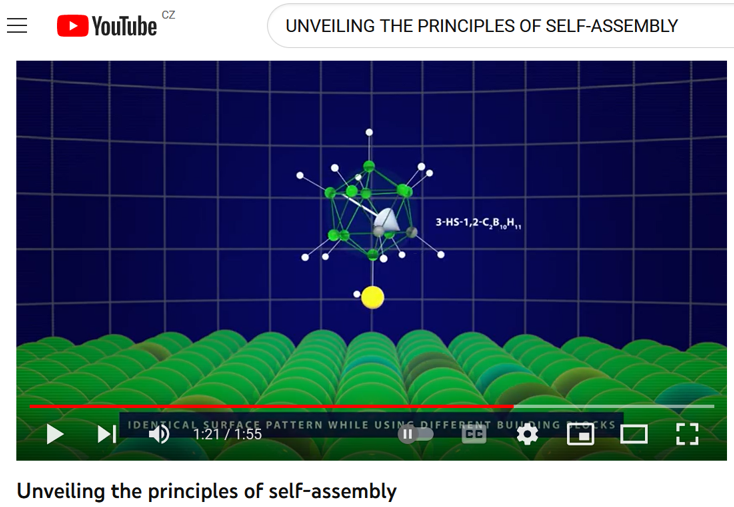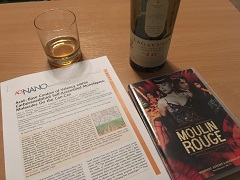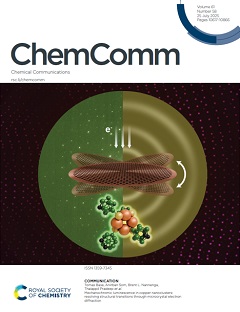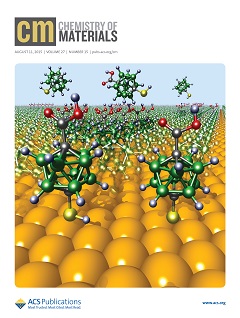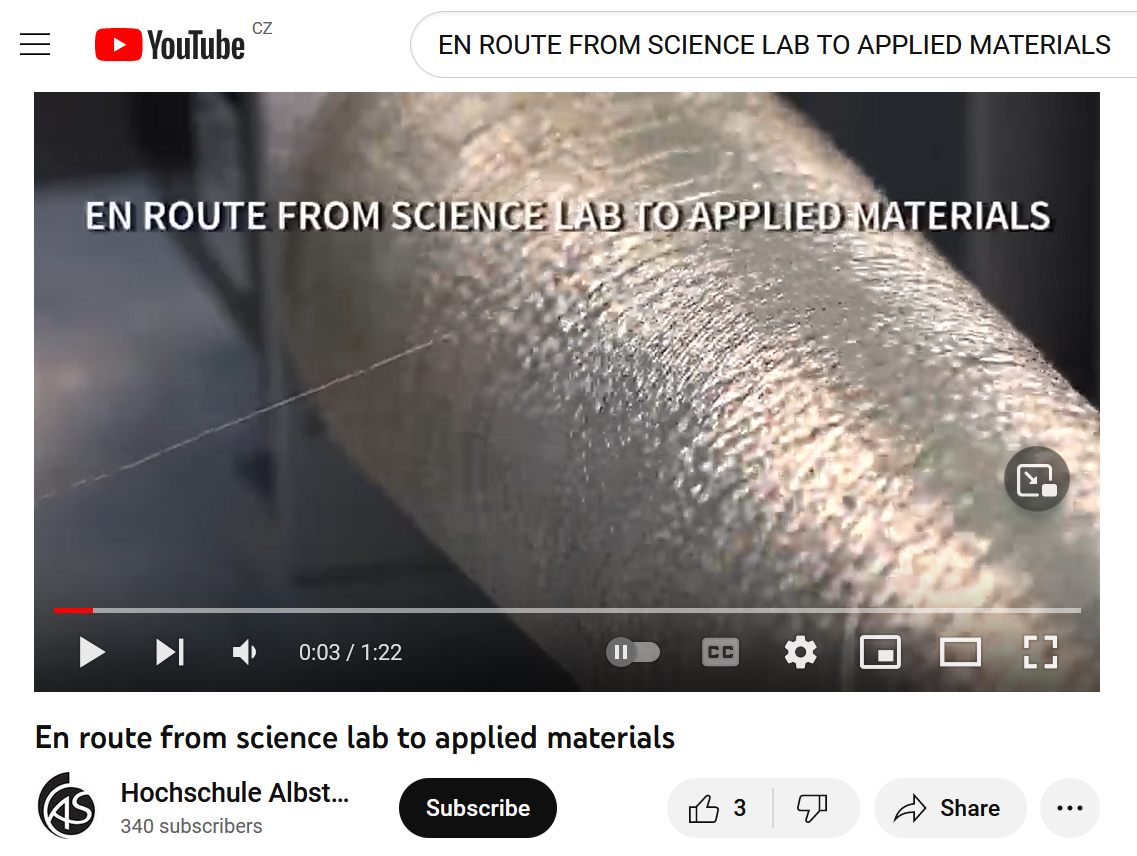(Car)Borane Clusters in Self-Assembly
(Car)Borane clusters represent an important class of molecules in self-assembly research. Their rigid structures and diverse isomeric forms facilitate the study of specific physical properties in two-dimensional assemblies while maintaining the geometry of surface patterns. The resulting self-organized monolayers demonstrate fewer types and a lower overall number of surface defects, largely due to their limited conformational freedom. In our laboratories, we utilize these molecules to deepen our understanding of fundamental self-assembly principles and the intermolecular interactions that dictate supramolecular structures and functions.
Our investigations have addressed and highlighted key aspects such as the interaction of carborane clusters with flat metal (Au, Ag, Cu) surfaces. We have examined the influence of their dipole moment orientation and magnitude on surface properties, and have also expanded their functionality by introducing additional groups exposed on the surface in their self-assembled monolayers (SAMs). This interdisciplinary work involves the design and synthesis of novel (car)borane species to create and explore new types of stable interfaces, paving the way for advanced research and practical applications.
Chemistry of Materials 2024, 36, 2085-2095.
Journal of the American Chemical Society 2023, 145, 17975−17986.
Chemistry of Materials 2020, 32, 6800−6809.
ACS Nano 2018, 12, 2211–2221.
Chemistry of Materials 2015, 27, 5425–5435.
Langmuir 2005, 21, 17, 7776–7785.
Atomically Precise Metal Clusters
Our research on metal clusters builds upon the successful functionalization of (car)borane cluster molecules and the investigation of their interactions with gold and other metals (Ag, Cu) across their various dimensional levels. A key focus in this research is on the preparation of atomically precise metal clusters, a novel class of molecules that provide unique insights into the transition of properties from a single metal atom to its bulk form. When functionalized with (car)borane clusters, these metal nanoclusters exhibit enhanced thermal and chemical stability compared to those stabilized solely by organic ligands.
Atomically precise metal clusters open up diverse research opportunities, including the development of new cluster types and the exploration of phenomena such as their luminescent behavior. These advancements hold promise for broadening our understanding of their unique properties as well as potential applications in many areas.
Chem. Sci., 2024, 15, 13741-13752.
Nanoscale 2023, 15, 8141-8147.
ACS Nano 2021, 15, 15781-15793.
Chemical Science 2023, 14, 1613-1626.
Inorganic Chemistry 2022, 61, 8593−8603.
Posters/Plakats:
